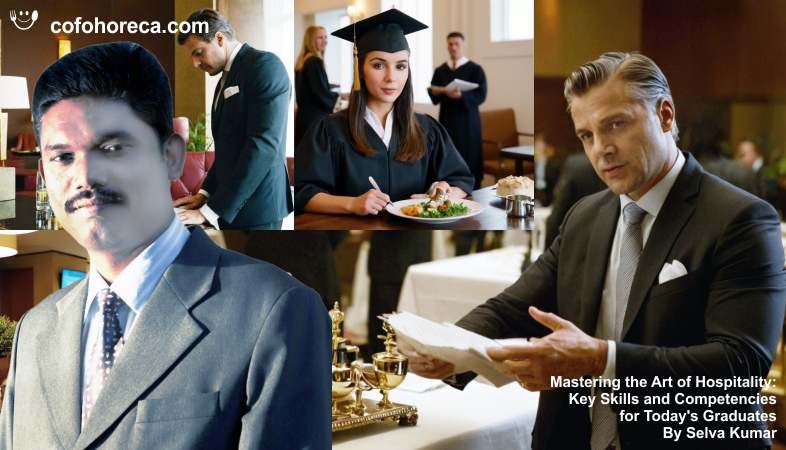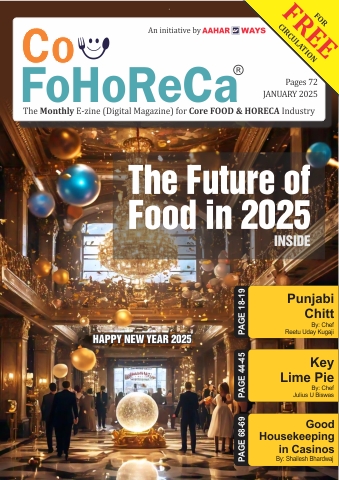Mastering the Art of Hospitality: Key Skills and Competencies for Today's Graduates - By Selva Kumar
This article aims to delve into the key skills and competencies essential for today's graduates to excel in the field of hospitality management.
In the dynamic and competitive world of
hospitality management, success hinges not only on academic knowledge but also
on possessing a diverse skill set and competencies. This article aims to delve
into the key skills and competencies essential for today's graduates to excel
in the field of hospitality management. Divided into two categories, generic
managerial competencies and technical managerial competencies, we will explore
the multifaceted requirements of this industry.
Generic Managerial Competencies
Self-Management: Maintaining a positive attitude, continuous self-development, and respecting others are foundational attributes. Achieving a work-life balance and projecting a professional appearance are also crucial aspects of self-management.
Leadership and Communication: Effective leadership, time management, team building, and proficient presentation skills are vital for navigating the hospitality industry. Additionally, the ability to communicate orally and solve problems efficiently are indispensable skills.
Efficiency and Decision Making: Graduates must exhibit a results-oriented approach, efficiently implement plans, and make informed decisions. Strong written communication skills and the ability to multitask are also imperative for success.
Critical Thinking and Career Dedication: Critical thinking, adaptability, and a keen interest in the industry drive graduates towards excellence. Dedication to their career path, along with conceptual and analytical abilities, are key determinants of success.
Conflict and Stress Management: Proficiency in conflict resolution and stress management are essential for maintaining a harmonious work environment and ensuring productivity.
Technical Managerial Competencies
Operations Management and
Strategy
Understanding lodging and food operations, effective management and supervision, and recruitment and selection strategies are fundamental in operations management.
Financial Management
Skills in financial analysis, budget planning, cash flow management, and cost control are imperative for financial stability within hospitality establishments.
Customer Relations and Service Quality
Managing service quality, building customer relationships, forecasting trends, and motivating staff through training and development programs contribute to customer satisfaction.
Hygiene, Safety, and Product Knowledge
Maintaining health and hygiene standards, ensuring safety and security, and possessing in-depth knowledge of hospitality products and services are essential for guest satisfaction and safety.
Information Technology
Understanding globalization trends, proficient foreign language communication, cultural awareness, and facility management coupled with IT skills are vital in the digital age.
Marketing and Economics
Knowledge of economics, strategic marketing, revenue management, and comprehensive marketing analysis are essential for driving business growth and profitability.
Mastering the art of hospitality management demands a comprehensive blend of generic and technical managerial competencies. Today's graduates must not only possess academic knowledge but also exhibit strong leadership, communication, critical thinking, and technical skills to thrive in this dynamic industry. By honing these competencies, graduates can embark on successful careers and contribute to the growth and innovation of the hospitality sector.
.png)





























